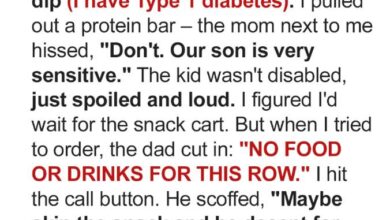How This Sign During Showering May Signal Early Alzheimer’s Disease

A reduced ability to smell familiar scents—like shampoo or soap—during your shower could be more than a passing issue. It may be an early sign of Alzheimer’s disease, researchers say.
👃 Why Smell Matters
-
Your sense of smell is closely linked to memory and emotion via brain regions like the hippocampus and amygdala.
-
These areas are often the first to show damage in Alzheimer’s.
-
Anosmia (loss of smell) can appear years before memory loss.
🧴 Smell Check in the Shower
If you consistently can’t detect your usual soap or shampoo scent, it may signal early cognitive changes—especially if paired with:
-
Trouble identifying other odors (like food or smoke)
-
Subtle memory or behavior changes
🔬 The Research
-
A University of Chicago 8-year study found that poor performance on a 12-scent test correlated with a higher risk of developing Alzheimer’s.
-
The smell test may be an effective, low-cost early screening tool for cognitive decline.
🏥 When to Seek Help
Contact a doctor if:
-
Smell loss is persistent
-
You also notice early cognitive signs (confusion, forgetfulness)
-
No cold, allergy, or sinus infection is present
🧩 Other Early Signs of Alzheimer’s
-
Memory lapses
-
Trouble with routine tasks
-
Time/place confusion
-
Vision/spatial issues
-
Mood or personality changes
-
Social withdrawal
💪 Ways to Support Brain Health
While Alzheimer’s can’t be fully prevented, you can support your brain by:
-
Exercising regularly
-
Eating a balanced diet (rich in vegetables, fruits, and lean protein)
-
Engaging in social and mental activities
-
Managing stress and getting quality sleep
🧠 Final Thought: The Nose Knows
Don’t ignore your nose. Regularly noticing less scent in daily activities—like showering—may offer a valuable early clue about your brain’s health. Early action can lead to better outcomes.


